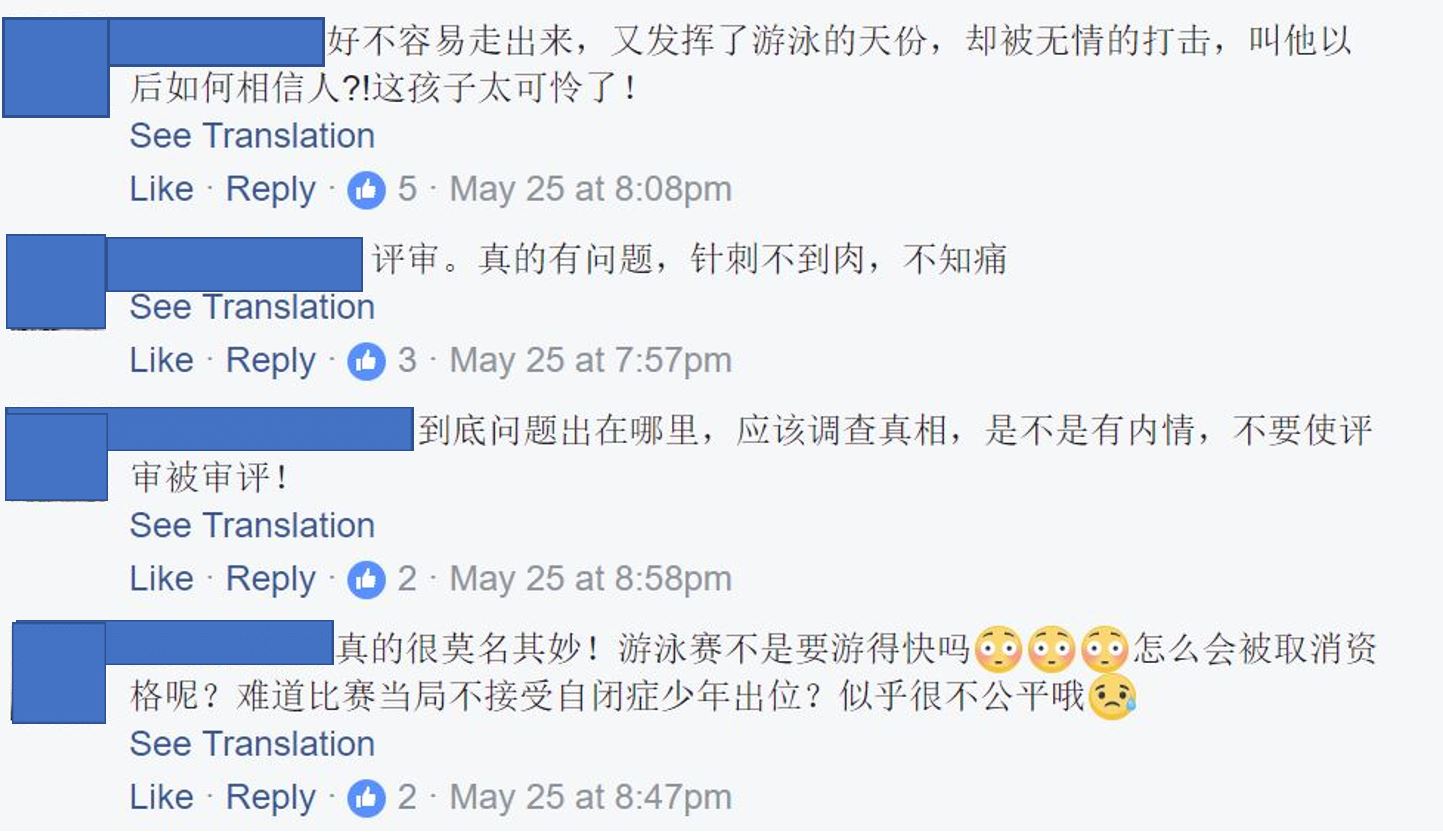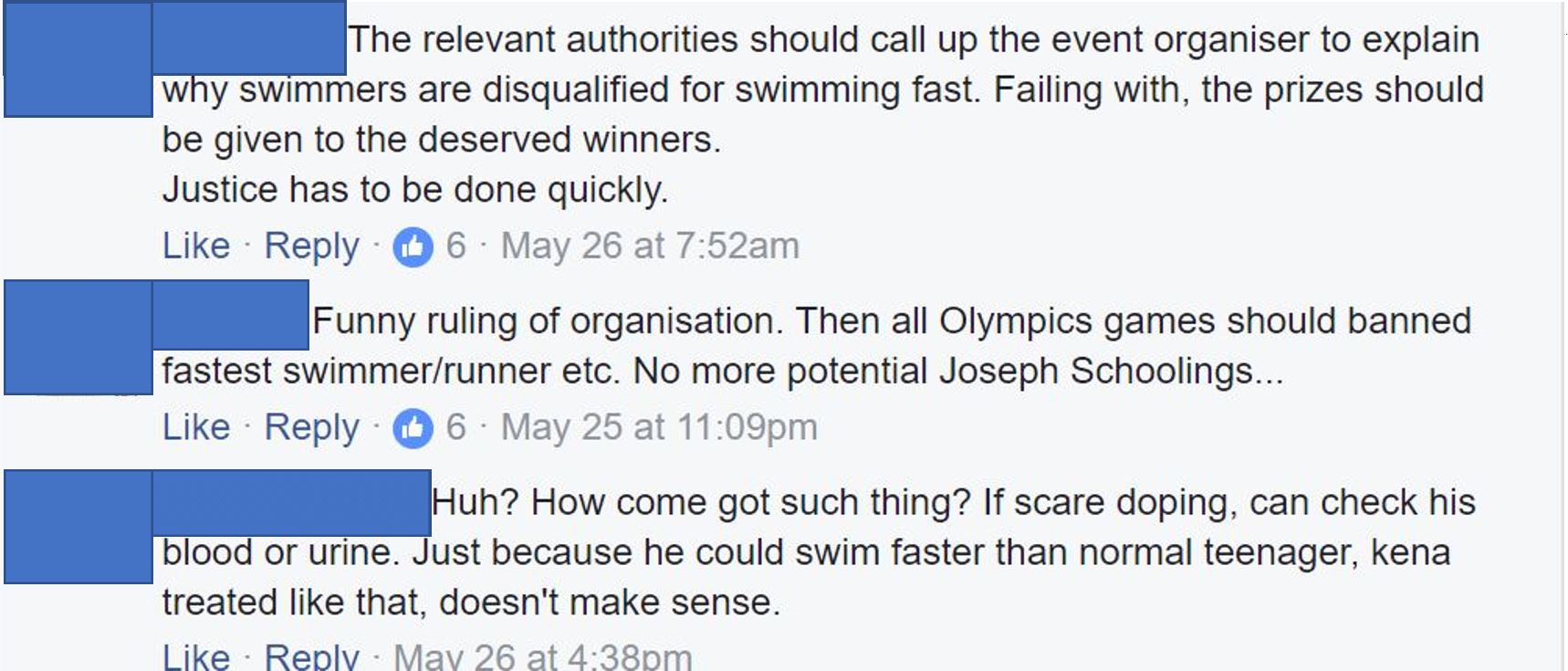He swam the race of his life and won a medal, only for the performance to be nullified due to an obscure rule that defines maximum effort. And it happened not once, but thrice.
This was what happened to a 15-year-old autistic boy who took part in the Special Olympics Singapore National Games swimming competition held at United World College of South East Asia on May 21.
He had won the 50m freestyle race and was disqualified for "swimming too fast". He subsequently won a silver in the 100m freestyle event, but was disqualified for the same reason. A re-race was held, and despite him slowing down deliberately, he was still denied a bronze medal after coming in third in the race.
His upset maternal grandmother recounted the story to Lianhe Wanbao four days later, questioning the rationale of the rules. She described how the family had encourage the boy to take part in the competition and the hard work he had put in over the last three months.
"My daughter (the boy's mum) had lost sleep for a few night. His grandfather and me still feels upset and tearful whenever we think about it."
"We understand all competition have rules, but the child has no idea what's going on. Why must he go through this? We are worried that this might negatively affect him psychologically."
Online reacts with incredulity
The story triggered a wave of sympathy online.
Apparently, many do not know about the existence and the rationale of such a counter-intuitive rule.
Many netizens felt indignant for the boy who worked so hard amid calls of unfair competition.

There were also calls to clarify the competition rules.

The "maximum-effort" rule
Swim fast also cannot? Then what's the point of having a competition? So what is this Special Olympics rule that caused much grief to this autistic boy and his family?
Actually, what is perhaps not well known outside the Special Olympics fraternity is that there are sound principles behind this rule. Special Olympics calls this competition-level matching “divisioning.”
The "maximum-effort" rule is in place to ensure that the finals pit athletes of equal or near-equal ability. It is enforced when an athlete's performance is 15 percent faster (or more) than in the preliminary divisioning races.
Coaches can circumvent the rule if an athlete has a subpar performance in a preliminary competition and asked for the athlete to be put in a higher division.
At the Special Olympics World Winter Games held in Austria in March 2017, 51 of 248 athletes were disqualified for violating the same maximum-effort rule.
Special Olympics International director of sport and development Christian Guiralt had said:
"We want to make sure athletes compete with athletes at the same ability level to make sure it's a fair competition."
"It's very, very important to understand that 15 percent improvement in one day for an athlete is too much. You would need too much training to do that."
Now that we know the rules, it is perhaps easier to accept what happened to the boy who won and lost three medals.
For family, friends, coaches of Special Olympics atheletes who are keen to learn about aspects Special Olympics divisioning, they can try this quiz here.
Here are totally unrelated but equally interesting articles:
To-be graduates, these are the jobs MNCs are looking to hire for in 2017
Train services on Downtown Line to open later on Sundays because next stop: good news
Top photo from Special Olympics Singapore
If you like what you read, follow us on Facebook and Twitter to get the latest updates.
If you like what you read, follow us on Facebook, Instagram, Twitter and Telegram to get the latest updates.
